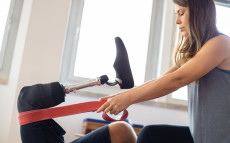- pathfindersAI
- Job Profile
Orderlies
Summary
The Role of Orderlies: A Comprehensive Job Description
What They Do
Orderlies play a crucial yet often underappreciated role in the medical ecosystem. These healthcare professionals provide essential support within medical facilities, ensuring that operations run smoothly and patient care remains consistent and compassionate. Orderlies work under the supervision of nursing staff, assisting with the daily activities that are crucial for a patient’s comfort and well-being. From transporting patients to and from diagnostic tests, to maintaining cleanliness and hygiene in patients' rooms, their contributions are indispensable. Essentially, orderlies form the backbone of support services in hospitals, long-term care facilities, and other medical settings.
Job Responsibilities
The day-to-day responsibilities of orderlies are varied and dynamic. Primarily, they are tasked with moving patients through the medical facility, which involves the safe transfer and transport of individuals who require assistance due to their medical condition. Orderlies also play a role in maintaining a clean and orderly environment, which includes sanitizing medical equipment, changing bed linens, and ensuring that patient rooms are organized. They may assist with basic patient care activities such as helping patients eat, bathe, or dress. Additionally, orderlies are often called upon to support medical staff during emergencies, providing critical aid when needed most. They must frequently interact with patients, offering companionship and comfort, which requires a compassionate and patient-centered approach.
Essential Skills
To be effective in their roles, orderlies must possess a unique combination of skills and attributes. Physical stamina is paramount, as the job often requires lifting and moving patients and equipment. Strong communication skills are also essential, as orderlies must be able to follow instructions from healthcare providers and interact empathetically with patients and their families. Attention to detail is crucial for maintaining the cleanliness and order essential for a safe medical environment. Additionally, orderlies must demonstrate reliability, as timely and consistent performance is vital in a healthcare setting. Critical thinking and the ability to remain calm under pressure are skills that enable orderlies to respond effectively during emergency situations.
Educational Pathways
The pathway to becoming an orderly typically begins with a high school diploma or equivalent. While some employers provide on-the-job training, aspiring orderlies can enhance their employability by completing a basic healthcare training program or a certified nursing assistant (CNA) course. These programs, often available at community colleges and vocational schools, cover essential topics such as patient care techniques, infection control, and basic medical terminology. Certification and additional training in cardiopulmonary resuscitation (CPR) and first aid are also beneficial and sometimes required. Engaging in continuous education and training ensures that orderlies stay current with best practices and maintain high standards of care.
Career Prospects
The demand for orderlies is expected to remain steady, driven by the growing needs of an aging population and the expansion of healthcare services. Employment opportunities exist in a variety of settings, including hospitals, nursing homes, rehabilitation centers, and outpatient care facilities. Experience as an orderly can also serve as a valuable stepping stone for those interested in pursuing further healthcare careers, such as nursing or medical assisting. With on-going experience and potential additional certifications, orderlies can advance to more specialized roles that offer greater responsibility and higher pay.
Conclusion
Orderlies are vital members of the healthcare team, contributing significantly to the comfort and care of patients through their diverse and essential responsibilities. Their role demands a blend of physical endurance, empathy, strong communication skills, and attention to detail. With accessible educational pathways and positive career prospects, becoming an orderly presents a promising opportunity for those interested in making a meaningful impact in the healthcare field. The contributions of orderlies form an integral part of the patient care experience, highlighting the value and importance of this role within the medical community.
Video
Compensation
| State | Median Salary | Median Hourly | Positions |
|---|---|---|---|
| AL | 29,900 | 14.38 | 500 |
| AK | 39,010 | 18.76 | 70 |
| AZ | 36,560 | 17.58 | 730 |
| AR | 29,990 | 14.42 | 390 |
| CA | 45,920 | 22.08 | 4,520 |
| CO | 39,230 | 18.86 | 630 |
| CT | 36,940 | 17.76 | 1,000 |
| DE | 40,760 | 19.60 | 200 |
| DC | 41,390 | 19.90 | 50 |
| FL | 33,600 | 16.16 | 3,630 |
| GA | 34,490 | 16.58 | 1,840 |
| HI | 43,810 | 21.06 | 80 |
| ID | 34,060 | 16.38 | 140 |
| IL | 37,140 | 17.86 | 2,330 |
| IN | 37,570 | 18.06 | 1,730 |
| IA | 35,410 | 17.02 | 280 |
| KS | 37,270 | 17.92 | 190 |
| KY | 33,760 | 16.23 | 690 |
| LA | 29,190 | 14.04 | 360 |
| ME | 32,800 | 15.77 | 130 |
| MD | 35,260 | 16.95 | 1,360 |
| MA | 38,260 | 18.39 | 1,420 |
| MI | 34,940 | 16.80 | 1,350 |
| MN | 45,360 | 21.81 | 290 |
| MS | 28,850 | 13.87 | 290 |
| MO | 36,520 | 17.56 | 650 |
| NE | 35,470 | 17.05 | 110 |
| NV | 39,290 | 18.89 | 120 |
| NH | 38,820 | 18.66 | 150 |
| NJ | 36,990 | 17.78 | 2,790 |
| NM | 35,010 | 16.83 | 190 |
| NY | 45,480 | 21.87 | 4,520 |
| NC | 36,560 | 17.58 | 1,670 |
| OH | 36,140 | 17.37 | 2,430 |
| OK | 33,090 | 15.91 | 280 |
| OR | 42,280 | 20.33 | 250 |
| PA | 39,170 | 18.83 | 3,400 |
| RI | 37,020 | 17.80 | 210 |
| SC | 37,320 | 17.94 | 1,970 |
| SD | 36,500 | 17.55 | 220 |
| TN | 31,660 | 15.22 | 340 |
| TX | 33,430 | 16.07 | 2,020 |
| VT | 39,640 | 19.06 | 130 |
| VA | 34,590 | 16.63 | 1,430 |
| WA | 46,380 | 22.30 | 340 |
| WV | 33,260 | 15.99 | 240 |
| WI | 38,800 | 18.65 | 670 |
| WY | 29,940 | 14.40 | 70 |
Similar Occupations
In this area you will find other occupations that are close to the one you were viewing in tasks, knowledge and work environment. If the primary job profile you are viewing isn't quite to your liking, take a look around and see what else is available.
Basic and Premium Accounts have more alternative occupations available than the Free account.

Nursing Assistants - 31-1131.00
Nursing Assistants provide essential care to patients by assisting with daily activities such as bathing, dressing, and feeding, as well as monitoring vital signs and reporting any changes in patient condition to the medical staff. They play a critical role in ensuring the comfort and well-being of patients in various healthcare settings, including hospitals, nursing homes, and long-term care facilities.
-
$38,200/yr
Median Pay -
1,351,760
Number of Jobs

Physical Therapist Aides - 31-2022.00
A Physical Therapist Aide assists licensed physical therapists in the preparation and execution of treatment plans, helping with tasks such as setting up equipment and assisting patients with exercises. They also handle administrative duties, like scheduling appointments and maintaining patient records, to ensure smooth clinic operations.
-
$33,520/yr
Median Pay -
42,390
Number of Jobs